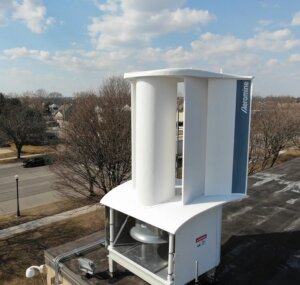
The possibility of mapping out someone’s entire life in advance is both exciting and scary. A new artificial intelligence trained on the personal data of every person in Denmark can do just that.
Today’s deep learning-based AI systems are prediction machines. They work by ingesting vast amounts of data and using it to pick out statistical patterns that can be used to make informed guesses about previously unseen data.
Despite the uncannily fluent linguistic capabilities of AI chatbots, they operate in much the same way. They learn from huge amounts of text data and then attempt to predict what word comes next in a string of text.
What allowed the breakthrough in capabilities that we’ve seen in the last few years was a new deep learning architecture, known as a transformer, that can train on far more data than previous algorithms. It turns out that when you can train models on almost the entirety of the internet, their predictions become very sophisticated.
Now researchers have shown that they can use the same kind of techniques to train a model on a huge database of health, social, and economic information collected by the Danish government. The resulting AI was able to make highly accurate predictions about people’s lives, including how likely they are to die in a given time window and their personality traits.
“The model opens up important positive and negative perspectives to discuss and address politically,” Sune Lehmann from the Technical University of Denmark, who led the study, said in a statement. “Similar technologies for predicting life events and human behavior are already used today inside tech companies that, for example, track our behavior on social networks, profile us extremely accurately, and use these profiles to predict our behavior and influence us.”
The dataset the researchers used spans from 2008 to 2020 and includes all six million Danes. It features information on their income, job, social benefits, visits to healthcare providers, and disease diagnoses, among other things.
Getting the data into a format a transformer can understand took some work though. They restructured all the information in the database into what they call “life sequences,” with all the events associated with each individual organized in chronological order. This makes it possible to do next-event prediction in much the same way an AI chatbot does next-word prediction.
When trained on large numbers of these life sequences, the model can start to pick out patterns that connect disparate events in someone’s life and help it make predictions about the future. The researchers trained their model on the life sequences of people aged 25 to 70 between the years of 2008 and 2016 and then used it to make predictions about the next four years.
When they asked it to guess the likelihood of someone dying in that period, it outperformed the current state-of-the-art by 11 percent. They also got the model to make predictions about how people scored on a personality test, and the results outperformed models specifically trained for that task.
While the performance on those two tasks is impressive, in a paper describing the research in Nature Computational Science, the team points out that what’s really exciting about the model is the fact it can potentially be used to make all kinds of predictions about people’s lives. Previously, AI has normally been trained to answer specific questions about people’s health or social trajectories.
Obviously, this kind of research raises some thorny questions about privacy and human agency. But the researchers point out that private companies are almost certainly doing similar things with their own data, so it’s useful to understand what these kinds of techniques make possible.
And given the rapidly advancing capabilities of AI, it will be important to have public debates about what kind of AI-powered predictions we allow in both the private and public sphere, says Lehmann.
“I don’t have those answers,” he said in a press release. “But it’s high time we start the conversation because what we know is that detailed prediction about human lives is already happening and right now there is no conversation and it’s happening behind closed doors.”
- SEO Powered Content & PR Distribution. Get Amplified Today.
- PlatoData.Network Vertical Generative Ai. Empower Yourself. Access Here.
- PlatoAiStream. Web3 Intelligence. Knowledge Amplified. Access Here.
- PlatoESG. Carbon, CleanTech, Energy, Environment, Solar, Waste Management. Access Here.
- PlatoHealth. Biotech and Clinical Trials Intelligence. Access Here.
- Source: https://singularityhub.com/2023/12/22/this-ai-trained-on-the-life-events-of-every-person-in-denmark-it-can-now-predict-their-future/
- :has
- :is
- $UP
- 11
- 2008
- 2016
- 2020
- 25
- 70
- a
- Able
- About
- accurate
- accurately
- address
- advance
- advancing
- aged
- agency
- AI
- AI chatbot
- AI-powered
- algorithms
- All
- allow
- allowed
- almost
- already
- also
- among
- amounts
- an
- and
- answer
- answers
- architecture
- ARE
- artificial
- artificial intelligence
- AS
- associated
- attempt
- BE
- because
- become
- been
- behavior
- behind
- benefits
- between
- both
- breakthrough
- but
- by
- call
- CAN
- capabilities
- certainly
- chatbot
- closed
- comes
- Companies
- computational
- Connect
- Conversation
- credit
- Current
- danish
- data
- Database
- debates
- deep
- deep learning
- Denmark
- describing
- detailed
- Die
- discuss
- Disease
- disparate
- do
- does
- doing
- Dont
- doors
- Dying
- each
- Economic
- Entire
- entirety
- events
- Every
- example
- exciting
- extremely
- fact
- far
- Features
- few
- For
- format
- four
- from
- future
- given
- got
- Government
- Happening
- Have
- he
- Health
- healthcare
- help
- High
- highly
- How
- HTTPS
- huge
- human
- important
- impressive
- in
- includes
- Including
- Income
- individual
- influence
- information
- informed
- inside
- Intelligence
- Internet
- into
- IT
- Job
- just
- Kind
- Know
- known
- large
- Last
- LEARN
- learning
- Led
- Life
- likelihood
- likely
- Lives
- Machines
- make
- MAKES
- mapping
- million
- model
- models
- more
- much
- Nature
- negative
- networks
- New
- next
- no
- normally
- now
- numbers
- of
- on
- opens
- operate
- or
- order
- Organized
- Other
- our
- out
- outperformed
- own
- Paper
- patterns
- People
- people’s
- percent
- performance
- period
- person
- personal
- personal data
- Personality
- perspectives
- pick
- plato
- Plato Data Intelligence
- PlatoData
- Point
- points
- politically
- positive
- possibility
- possible
- potentially
- predict
- predicting
- prediction
- Predictions
- press
- previous
- previously
- privacy
- private
- Private Companies
- Profile
- Profiles
- providers
- public
- Questions
- raises
- rapidly
- really
- research
- researchers
- resulting
- Results
- right
- same
- says
- seen
- shown
- similar
- SIX
- So
- Social
- social networks
- some
- Someone
- sophisticated
- spans
- specific
- specifically
- start
- state-of-the-art
- statistical
- String
- Study
- Systems
- Task
- tasks
- team
- tech
- tech companies
- Technical
- techniques
- Technologies
- test
- text
- than
- that
- The
- The Future
- the information
- their
- then
- There.
- These
- they
- things
- this
- those
- though?
- time
- to
- today
- took
- track
- Train
- trained
- transformer
- turns
- two
- understand
- university
- us
- use
- used
- using
- Vast
- very
- Visits
- was
- Way..
- we
- What
- when
- WHO
- will
- window
- with
- Word
- Work
- years
- You
- zephyrnet













